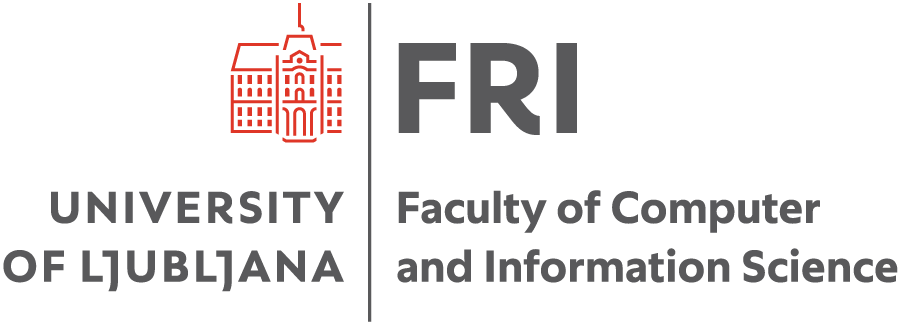- Once an FRI student, today director of bioinformatics company Genialis
Genialis began as a spin-out of the Bioinformatics Laboratory and today is involved in developing software for genome data analysis. To find out how Genialis works and what role the Faculty of Computer and Information Science (FRI) plays in this, we spoke to Genialis director and former FRI student Nejc Škoberne.
1. You completed a doctorate at the Faculty of Computer and Information Science. What was it that persuaded you to pursue doctoral studies?
A year after the old university study programme came to an end, an opportunity appeared for "young researchers from industry." I had been working in industry since I was 15 years old and had never felt any particular need to cross over into an academic environment. This opportunity attracted me, however, because I was interested in discovering the world of academic research and developing the knowledge I had acquired to date, above all through working for companies. Even so, there were several moments during my studies when I felt I had made the wrong decision, because I'm not a true researcher at heart, I'm more of an organiser, a coordinator, and now also a businessman. Today I certainly don't regret this decision, since without a science doctorate it would be a lot harder to run my company. Our users are scientists, so my doctorate helps me to understand their way of thinking and the work they do.
2. What can you tell us about your experience as a doctoral student? What, in your opinion, is the added value of this type of study?
My doctorate was in computer networks, with a focus on the transition to Internet Protocol version 6 (IPv6). There are relatively few people working in this field at our faculty, so I found a co-supervisor abroad. The course seemed good to me, in principle. I was part of the first generation to embark on the new-style doctoral programme following the Bologna reform. The added value of doctoral studies in general is that they teach you the value of perseverance and hard work – all of a sudden you have to research something brand new that no one in the world has yet researched, which is quite a challenge these days because there are a lot of researchers. You learn to be autonomous and to take responsibility for your own successes or failures. Above all, you are forced to go deeply into a given field and study it really thoroughly.
3. Together with your colleague Miha Štajdohar you founded Genialis, where you are now developing user-friendly software for biodata processing. Why did you decide to found a start-up?
In the last years of my doctoral studies I was already thinking about setting up my own company and leaving the company where I had worked previously. If I'm perfectly honest, before that I had never wanted to become a businessman. I had always thought I was going to be an engineer. But then I got interested in a prototype developed by a student in the Bioinformatics Laboratory. I liked it so much that I began thinking about how we could try and market it commercially. That's how it started. Then the lab was approached by a pharmaceutical company that wanted us to develop an application to help them analyse data. Instead of the lab doing this, Miha and I decided to do it ourselves.
4. From the academic world you have switched your focus to industry with Genialis, which operates as a spin-out of the Bioinformatics Laboratory at FRI. Did the transition cause you any problems? How does the experience you gained at FRI help you in your current work?
Personally, I didn't come from the academic world, but from industry, where at that time I had already been working for 12 years. Without this experience, starting up the company would have been much more difficult. As a general principle there is too little crossover between the industrial and academic environments, with the result that a lot of researchers don't have a sense for what it means to manufacture and market products or, vice versa, many engineers at companies are unaware of how difficult it is to create a new contribution to science, no matter how small.
The hardest transition was, in any case, entrepreneurial: how do we build a company that will make products that a large circle of customers will find interesting? How do we manage the finances? Unfortunately I didn't get the right answers to these and many other questions during my time at the faculty. Which is undoubtedly a missed opportunity, since highlighting some of these issues would probably encourage many bolder engineers to start thinking about starting their own businesses.
5. What are your plans for the future?
We are hoping to complete a financing round worth 1.5 million dollars by July 2017 with the help of venture capital investors. After that, we want to grow the team by ten people over the course of a year and be generating significant revenue from the sale of our products via our partners by the end of 2018. Our target is to be generating annual revenues of more than 100 million dollars within 5–7 years.
Our main goal is to fulfil our mission: to enable the majority of scientists working in life sciences fields to analyse biodata themselves. And on the way to fulfilling that mission, to enjoy the company of our great colleagues in the Genialis team.
The Faculty of Computer and Information Science operates 19 research laboratories. If you have an idea for a project or would like to collaborate with any of them, knock on the door of the laboratory that interests you and tell them you want to work with them. For more information about the laboratories, members and their projects, visit the FRI website.
